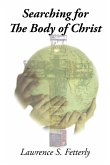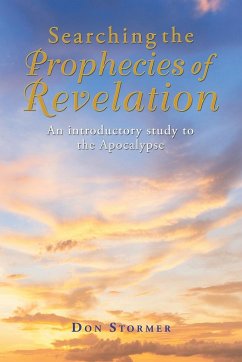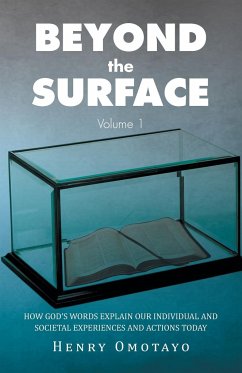We all want to know how the God of the Bible differs from the Islamic Allah. How does a covenant-keeping God interact in the divine-human relationship? In what ways does a contract-demanding Allah vary from biblical truth? This comparative religious exploration will equip Christians to clarify the difference. Searching Below the Surface: A Deeper look at Covenant and Contract prepares the reader to present biblical truths by exposing Muslim ideas.The book unearths the often-unseen perspectives of a covenant God called Yahweh and a deity prone to contract, Allah. The book seeks to answer these questions: * How does Yahweh's Oneness promote covenant understanding? * How do Muslims define the Absolute Oneness of Allah? * How do the Creation accounts in the Bible and Quran reflect theology? * In what ways does Islam ignore a covenant ethos? * What are the implications of covenant and contract when applied to marriage? Marriage in the Bible reflects a relationship found in the divine Godhead and how he interacts with believers. Since covenant marriage patterns divine oneness in how spouses relate and share sacrificially, this mode of marriage mirrors the character of the biblical God. "Nakhati Jon skillfully searches below the surface to understand the roots of the thinking of our Muslim friends and neighbors, and Christians" Patrick Cate, Ph.D. In a covenant marriage, the husband and wife become one, which means more than physical oneness but a mystical, spiritual unity that reflects the Trinity of Oneness! Nakhati Jon Oneness describes the Islamic idea concerning deity but undermines the ideas of Islamic marriage. Nakhati Jon Excerpt: On another scorching, sweltering day in Central Asia, we traveled to the capital in our rented taxi. As per custom, my wife sat in the back with our kids while I sat in the front, chatting with the driver. Dust and welcome air flew in through the open windows, and we talked loudly to drown out the wind. Then, the inevitable conversation began: Driver: Central Asian women are beautiful, aren't they? (My back prickled in response to my wife's almost-palpable eye-roll.) Me: My wife is beautiful. Driver: You should get a second wife. (I felt my wife rethinking pacifism.) Me: (Emphatically) God is one! Therefore, I will have only one wife! Driver: Oh-this is true! (Pause) Does your wife speak the language? >Years later, my wife confessed she had ignored the illogic of the "One God/one wife" statement in return for its success as a conversation-stopper. But in researching, I happily discovered my shot at philosophy had been logical after all. In fact, my bit of accidental wisdom carried foundational truths about Yahweh's nature, his relationship with man, and his plan for marriage.
Hinweis: Dieser Artikel kann nur an eine deutsche Lieferadresse ausgeliefert werden.
Hinweis: Dieser Artikel kann nur an eine deutsche Lieferadresse ausgeliefert werden.








